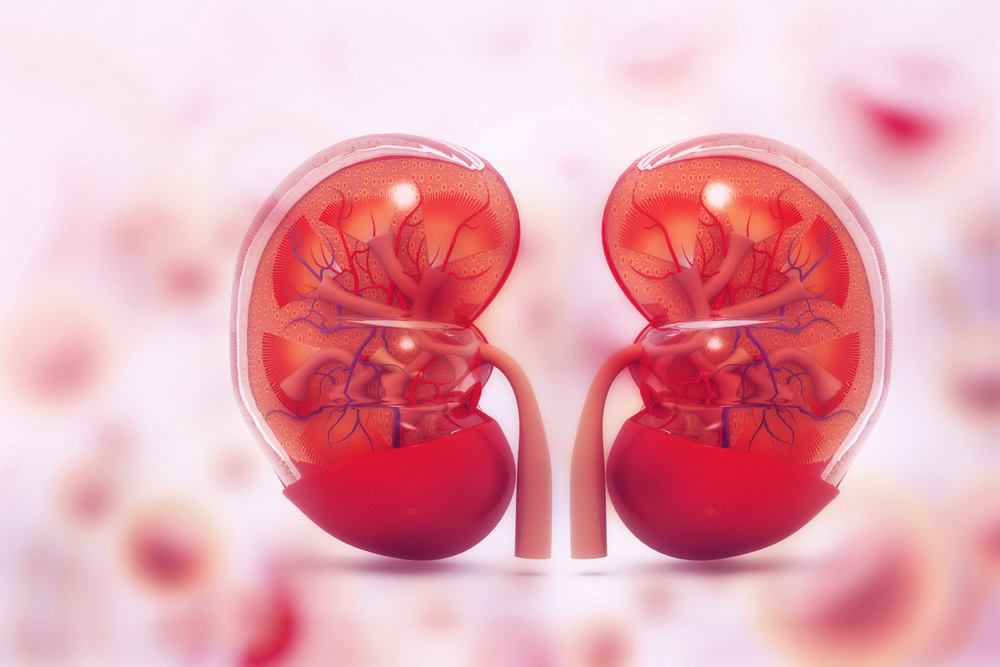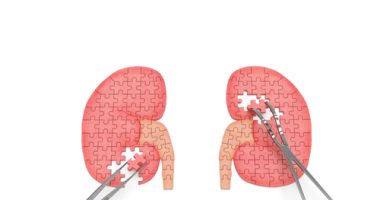Alport Syndrome Patients Show Progressively Lower Quality of Life Over Time, Study Reports

Patients with chronic kidney disease due to Alport syndrome, particularly women and those with the X-linked form of the disorder, have a low quality of life that decreases over time, according to a natural history of disease study.
Findings of the study, conducted by Regulus Therapeutics, also revealed new urine and blood biomarkers correlating with the decline of kidney function in these patients.
Regulus presented two posters on its international, multicenter, observational study (NCT02136862), called ATHENA, at the American Society of Nephrology’s recent Kidney Week 2018 meeting in San Diego.
ATHENA was designed to characterize the progression of renal dysfunction in Alport patients. A total of 165 patients with a mean age of 44.8 years were included, of whom 33.9% were men, 64.8% had X-linked Alport, and 83% were white. The patients were followed up for two years.
One of the studies, “Quality of Life Changes as Measured with SF-36 in Patients with Alport Syndrome: Results from the ATHENA Natural History Study in Alport Syndrome Patients,” used the short form (SF)-36 questionnaire to assess Alport’s impact on quality of life at the start of the study and every 24 weeks.
Results showed a statistically significant decrease, or worsening, in five domains throughout the study: general health, role limitations due to physical health, mental health, role limitations due to emotional problems, and social functioning.
Additionally, the mental component score was lower in women, patients with X-linked mutations, and those with an estimated glomerular filtration rate (eGFR) — an indicator of kidney function — above 60ml/min/1.73m2. These three groups were more likely to have progressively worse scores over time.
Comparing between subgroups, the only significantly different domain was general health, which was lower in women and in patients with an eGFR higher than 60 ml/min/1.73m2.
“In patients with [Alport], QOL [quality of life] scores using the SF-36 are low and decrease with time. Lower baseline eGFR is associated with lower QOL,” the scientists wrote.
The other study, “Urine and blood biomarkers correlate with rate of eGFR decline in Alport syndrome,” was aimed at finding new markers of kidney function and characterizing the decline of kidney function markers such as eGFR, creatinine, and proteinuria — the presence of protein in urine and Alport’s primary symptom.
Results showed that the median decline in eGFR was 2.35 ml/min/year, from an initial value of 63.9 ml/min/1.73m2 at the start of the study.
Higher serum protein, albumin (the most abundant protein in plasma), and CO2 were associated with a less pronounced decline in eGFR. Higher urine albumin/creatinine ratio, urine protein/ creatinine ratio, chloride, cholesterol, LDL cholesterol, and NGAL — a protein biomarker of acute kidney injury – correlated with a more marked eGFR decline.
“A number of urine and blood biomarkers correlate with short term rate of decline in eGFR in patients with [Alport],” the researchers wrote.
“We are very proud of the work that has gone into completing this large natural history of disease study for Alport syndrome patients,” Jay Hagan, Regulus’ president and CEO, said in a press release. “This study has provided valuable information to better characterize the natural progression of Alport syndrome, which to date has not been well understood.”
According to Hagan, the two presentations resulted from the efforts of collaborating researchers, study participants, and the team at Regulus. Besides helping to understand changes in renal function in Alport, ATHENA was also intended to “inform future clinical development plans for this disease,” he said.







Comments